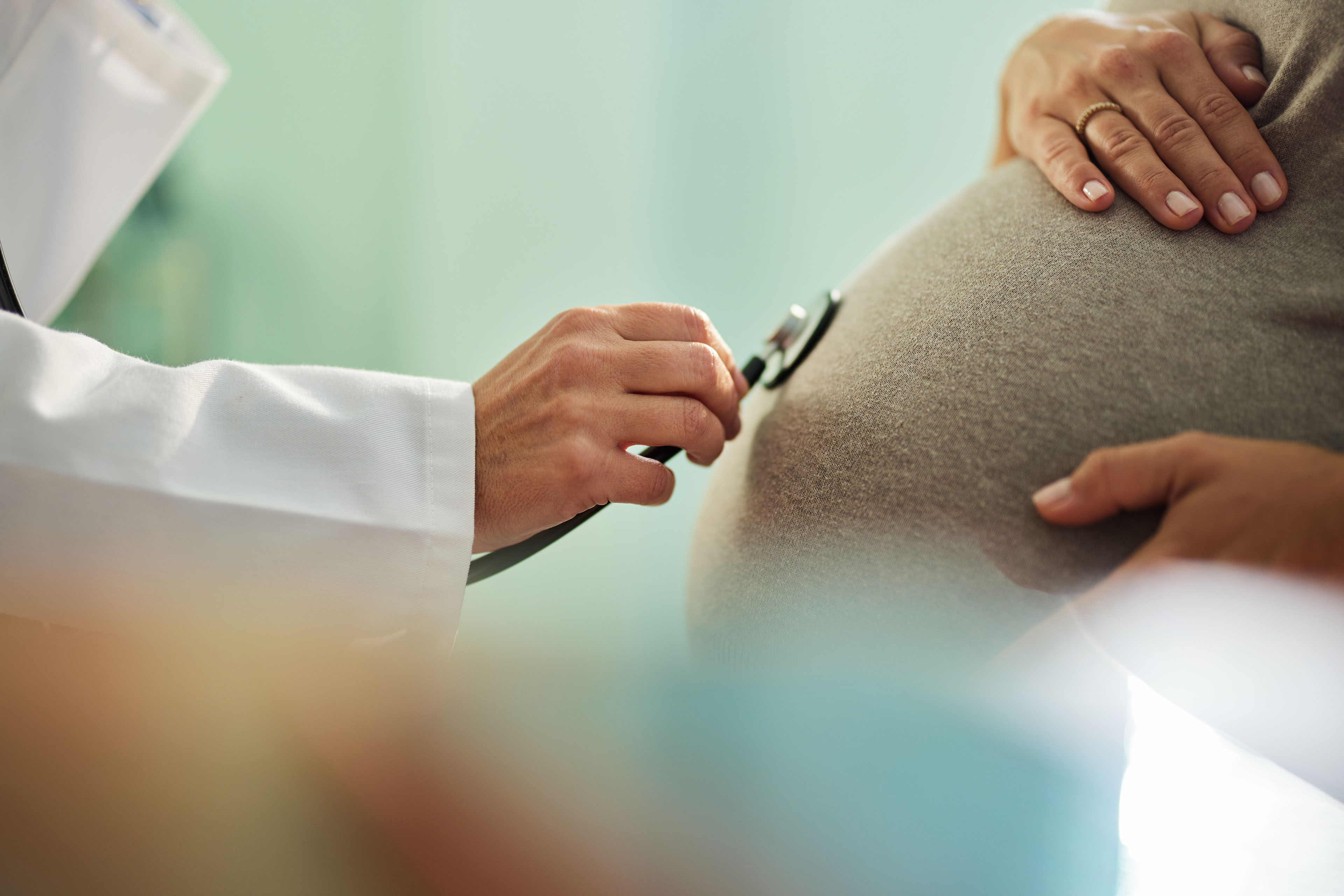Hot flashes and trouble sleeping get most of the attention in midlife, but many women also notice changes in their gut. Bloating shows up out of nowhere, once-reliable bathroom routines go completely off track and foods that used to sit fine now feel heavy.
Is it just getting older? Or is something else going on? Research shows hormone shifts in perimenopause and after menopause can nudge the gut out of balance for some women. “The gut microbiome affects many parts of your health, including your immune system, metabolism and even brain function," said Charis Chambers, M.D., a board-certified OB-GYN and founder of The Period Doctor. "In short, the gut microbiome is a key player in staying healthy during midlife."
Learn what changes in your gut microbiome during midlife and simple tips that help you keep it in check.
How perimenopause and menopause can affect the gut microbiome
“Hormone levels, especially estrogen, fall and become more variable, and that can change the kinds of microbes that thrive in your gut," explained board-certified OB-GYN Kate McLean, M.D., MPH, FACOG. Some small studies have shown less diversity and a gut profile that looks more like men’s, even when researchers consider age and lifestyle.
Scientists use the term estrobolome to describe the group of gut bacteria and enzymes that help process and recycle estrogen. Changes in these bacteria may affect how much estrogen is recycled versus cleared from the body, Chambers said. "This means less estrogen is reabsorbed and available for use in the body, which may further worsen menopause symptoms and increase risks for osteoporosis, metabolic syndrome and cardiovascular disease."
These changes are also linked to signs of heart and metabolic risk in some studies. Daily habits, aging, medicine, and changes in sleep, stress, activity and diet can all influence which microbes thrive in the gut, Chambers explained.
How microbiome changes in menopause can impact your day to day
Lower microbiome diversity and shifts in the types of bacteria in the gut during menopause can lead to a range of symptoms. These symptoms can be different for everyone, but there are several that are common. “Women may notice digestive complaints like bloating, constipation and diarrhea,” said Chambers.
Since your microbiome plays a large role in regulating neurotransmitters that affect your mood and cognition, symptoms can go beyond the gut. You may notice brain fog, low energy, sleep trouble or mood changes, according to McLean.
Keeping a simple symptom log of what you eat, sleep times, movement and stress level next to symptoms can make clinic visits more useful and help you pinpoint what impacts your symptoms.
How to improve your gut microbiome
In order to improve the diversity of your gut microbiome, start with daily habits that support a healthy mix of gut bacteria. Small steps add up.
- Eat more fiber. Add fruits, vegetables, beans and whole grains to most meals, aiming to fill half the plate with plants. Fiber feeds helpful microbes and supports regularity.
- Choose simple fermented foods you like. Yogurt, kefir, sauerkraut, kimchi or tempeh can add helpful microbes to your gut. Pick options that fit your taste and budget. A spoonful or two with meals is enough to start.
- Move most days. Walking, strength training or aerobic exercise like cycling, running, and swimming support digestion and overall health, even in short bouts. Moderate, consistent exercise supports a healthy gut microbiome. But don’t overdo it — prolonged high-intensity exercise can actually get your microbiome out of whack.
- Protect sleep and lower stress. Try to get to bed and wake up at the same time each day. A short wind-down, and simple stress tools like breathing or stretching can help. Sleep and stress can both affect how your gut feels.
- Be careful with alcohol. Lowering your alcohol intake supports gut health (among other things). That’s because drinking alcohol throws off the balance of bacteria in your gut microbiome. It can also contribute to leaky gut because your gut microbiome sometimes begins to eat away at the lining of your gut when it gets out of balance. Your gut microbiome also creates metabolites when it’s processing alcohol — and some of those metabolites are toxic.
- Consider probiotics or prebiotics with care. Food-first fiber is a good starting point. Some people find supplements helpful, but results vary. If you want to try one, look for human-studied strains, a clear CFU amount and quality testing. Be sure to ask your healthcare provider (HCP) if you are immunocompromised or on certain medicines. “[Probiotics and prebiotics] can help some people, but the benefit depends on the product and the person,” McLean said.
- Know where hormone therapy fits. Menopausal hormone therapy is used to treat symptoms like hot flashes and sleep problems, and scientists are still studying how it might affect the gut. "From a gut standpoint, restoring estrogen can indirectly influence the microbiome and some symptoms, but hormone therapy is a medical decision based on overall risks and benefits, so discuss it with your provider," McLean said.
- One simple step to try this week. “Add one extra serving of fiber-rich food every day and drink a little more water,” McLean said. “It is simple, low-cost and supports a healthier gut right away."
Menopause care looks different for everyone
Access and cost can impact your options in midlife. Menopause care and use of hormone therapy differ by race, ethnicity, income and insurance. These gaps can increase symptom burden and limit treatment choices for many people. Many families also face food insecurity, which makes it harder to buy fiber-rich foods or fermented options on a regular basis.
Practical tips to make eating a gut microbiome-friendly diet:
- Choose low-cost sources of fiber and protein like beans, lentils, oats, brown rice, frozen veggies, canned fish — choose store brands and bulk bins when possible.
- Try low-cost fermented foods like plain yogurt, store-brand kefir, jarred sauerkraut.
- If supplements are out of budget, focus on whole food-based fiber first and skip packaged fiber-added foods that promise quick fixes.
- Look for community resources like WIC and SNAP benefits, food co-ops, community fridges and sliding-scale clinics.
- If you don't have access to a menopause-trained clinician, search directories from major societies and telehealth options that accept your insurance.
When to call a healthcare provider
Seek care if any of the following symptoms show up or don’t improve with simple steps:
- New or heavy vaginal bleeding, new or foul-smelling discharge, or severe pelvic pain.
- Severe belly pain, blood in stool, unexplained weight loss, or persistent vomiting.
- Gut symptoms that keep you from daily activities or don’t improve after a few weeks of basic changes.
Talk with your HCP about the full range of treatments for symptom relief, including menopausal hormone therapy when appropriate.
It's a myth that menopause automatically wrecks your gut and there’s nothing you can do," McLean said. "The gut is adaptable, and diet, movement, sleep and targeted care can meaningfully improve gut health at any age.



















 English (US) ·
English (US) ·